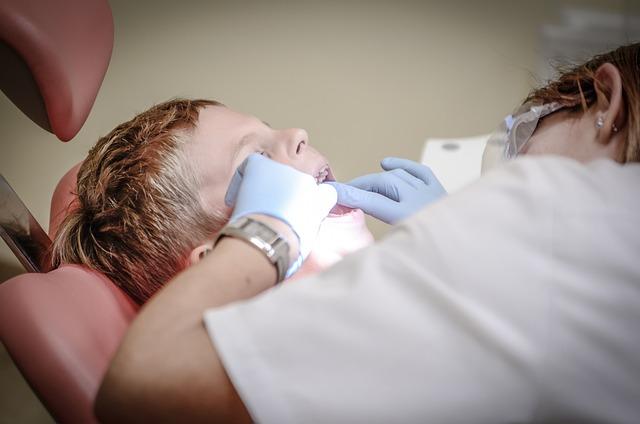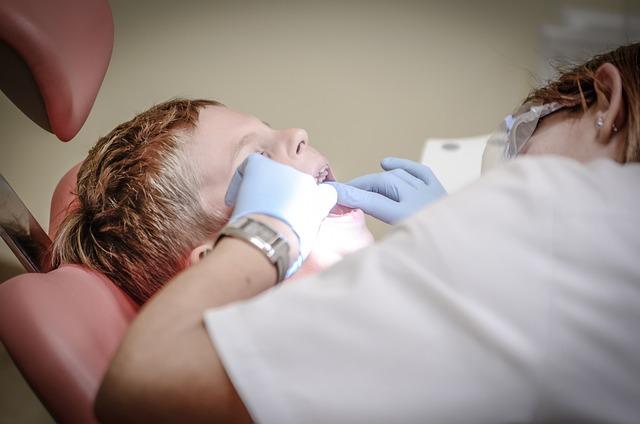What Does Salt Water Do After Tooth Extraction: Effects Explained
Have you ever wondered what happens to your mouth after a tooth extraction? Specifically, what does salt water do in this process? If you’re seeking answers with a confident and knowledgeable perspective, you’ve come to the right place. In this article, we will delve into the effects of salt water on your oral health post-extraction, providing you with clear and neutral information. So, let’s dive in and explore the role of salt water in the healing process, ensuring you have all the facts at your fingertips.
1. Understanding the Role of Salt Water: Post-Tooth Extraction Care Explained
After a tooth extraction, taking proper care of your oral health is crucial for a smooth recovery. One effective way to aid the healing process is by using salt water rinse. Salt water, also known as saline solution, can provide numerous benefits in post-tooth extraction care.
Why is salt water beneficial?
- Reduces swelling and inflammation: Salt water has natural anti-inflammatory properties that can help reduce swelling and inflammation in the affected area.
- Kills bacteria: Salt water acts as a natural disinfectant, killing bacteria and preventing infection in the empty socket left after the extraction.
- Promotes healing: The gentle rinsing action of salt water helps remove food particles and debris, promoting faster healing of the extraction site.
- Relieves discomfort: Salt water can provide temporary relief from any discomfort or pain you may experience after the extraction.
To create a salt water rinse, simply dissolve half a teaspoon of salt in eight ounces of warm water. Make sure the water is not too hot to avoid causing any additional discomfort. Gently swish the solution in your mouth for about 30 seconds, then spit it out. Repeat this process two to three times a day, especially after meals, for optimal results.

2. Unveiling the Effects of Salt Water on Tooth Extraction Wounds
Salt water has long been used as a natural remedy for various oral health issues, but its effects on tooth extraction wounds have remained a topic of debate. In this section, we will delve into the potential impact of salt water on post-extraction wounds and provide you with a comprehensive understanding of its benefits and drawbacks.
Pros of using salt water:
- Promotes natural healing: Salt water rinses can help stimulate blood circulation and promote the natural healing process of the wound.
- Reduces bacteria: Salt water has antiseptic properties that can reduce the number of bacteria in the mouth, minimizing the risk of infection.
- Relieves discomfort: Rinsing with salt water can provide temporary relief from pain and discomfort associated with tooth extraction wounds.
Cons of using salt water:
- Prolonged use can delay healing: While salt water can initially promote healing, excessive or prolonged use may disrupt the formation of a blood clot, leading to delayed healing.
- Potential for irritation: Some individuals may experience irritation or sensitivity to salt water, which can further complicate the healing process.
- Not a substitute for professional care: It is important to note that salt water rinses should not replace proper dental care or professional advice. Consulting with your dentist is crucial for optimal post-extraction wound management.
Understanding the effects of salt water on tooth extraction wounds can help you make informed decisions about your oral health. Remember to follow your dentist’s instructions and seek professional advice if you have any concerns or complications.
3. The Healing Benefits of Salt Water: How It Promotes Post-Extraction Recovery
After a tooth extraction, proper care and attention are crucial to ensure a smooth and speedy recovery. One highly effective and natural way to promote healing is by rinsing your mouth with salt water. The unique properties of salt water provide numerous benefits that aid in the recovery process.
1. Reduces inflammation: Salt water has natural anti-inflammatory properties that can significantly reduce swelling and inflammation around the extraction site. This helps alleviate discomfort and speeds up the healing process.
2. Prevents infection: Salt water is a natural antiseptic that can help prevent infection by inhibiting the growth of bacteria in the mouth. It creates an environment that is inhospitable to harmful microbes, reducing the risk of complications.
3. Promotes blood circulation: Salt water can stimulate blood flow to the extraction site, which aids in the delivery of essential nutrients and oxygen. Improved circulation accelerates the formation of new tissue, allowing the wound to heal more quickly.
Regularly rinsing your mouth with salt water after a tooth extraction can provide immense benefits for your post-extraction recovery. It is a simple, inexpensive, and natural remedy that can help you heal faster and minimize any potential complications. Remember to always follow your dentist’s instructions and consult with them if you have any concerns.
4. Salt Water Rinse: A Gentle, Natural Solution for Post-Tooth Extraction Healing
A salt water rinse is a gentle, natural solution that can greatly aid in the healing process after tooth extraction. This simple yet effective technique involves rinsing your mouth with a salt water solution, which helps to clean the surgical site and promote healing. Here are some key benefits and steps to follow when using a salt water rinse:
1. Reduces inflammation: Salt water has natural anti-inflammatory properties that can help reduce swelling and discomfort after a tooth extraction. This can provide much-needed relief, making the healing process more comfortable.
2. Prevents infection: Salt water is known for its ability to kill bacteria and prevent infection. By rinsing with a salt water solution, you can help keep the surgical site clean and minimize the risk of any post-operative infections.
3. Promotes healing: The gentle nature of a salt water rinse can help promote healing by keeping the area clean and free from debris. Additionally, the saline solution can stimulate blood flow to the site, which aids in the formation of new tissue.
To perform a salt water rinse, follow these steps:
– Dissolve 1/2 teaspoon of salt in 8 ounces of warm water.
– Take a small sip of the salt water solution and swish it around your mouth for 30 seconds.
– Gently spit out the solution, being careful not to rinse too vigorously.
– Repeat this process 2-3 times a day, especially after meals, for optimal results.
Remember, it is important to consult with your dentist or oral surgeon before starting any post-tooth extraction care routine. They will provide you with specific instructions tailored to your individual needs.
5. Exploring the Therapeutic Properties of Salt Water in Dental Recovery
One interesting area of exploration in dental recovery is the therapeutic properties of salt water. Salt water, also known as saline solution, has been used for centuries for its healing benefits. When it comes to dental recovery, salt water can be particularly beneficial in the following ways:
- Reducing inflammation: Salt water has a natural anti-inflammatory effect, which can help reduce swelling and discomfort after dental procedures such as extractions or gum surgeries.
- Promoting healing: Salt water can create an optimal environment for healing by keeping the oral tissues clean and free from bacteria. It can also help increase blood flow to the affected area, aiding in the regeneration of new tissues.
- Relieving pain: Rinsing with salt water can provide temporary relief from toothaches or sore gums. The salt helps to draw out fluids, reducing pressure and alleviating pain.
When using salt water for dental recovery, it’s important to follow some guidelines. Dissolve half a teaspoon of salt in warm water and swish it around your mouth for 30 seconds to a minute before spitting it out. Repeat this process two to three times a day or as directed by your dentist. Remember, salt water is not a substitute for proper dental care, but it can be a helpful addition to your recovery routine.
6. Nurturing Wound Healing: The Science Behind Salt Water’s Impact on Post-Extraction Sites
Nurturing wound healing is a crucial aspect of post-extraction care, and salt water has emerged as a scientifically proven method to enhance the healing process. Extensive research has uncovered the remarkable impact of salt water on post-extraction sites, providing a deeper understanding of its beneficial effects.
The science behind salt water’s impact lies in its ability to create a hypertonic environment. This hypertonic solution helps draw out excess fluid from the wound, reducing swelling and promoting faster healing. Additionally, salt water acts as a natural disinfectant, effectively killing bacteria and preventing infection.
Furthermore, salt water’s high mineral content, including essential minerals like magnesium and potassium, nourishes the wound site and promotes cell regeneration. This accelerates the formation of new tissue, leading to a quicker healing process.
- Reduced swelling: The hypertonic environment created by salt water draws out excess fluid and reduces swelling in post-extraction sites.
- Prevention of infection: Salt water’s natural disinfectant properties help kill bacteria and prevent infection, ensuring a clean healing environment.
- Enhanced cell regeneration: The high mineral content in salt water nourishes the wound site, promoting cell regeneration and accelerating the healing process.
By understanding the science behind salt water’s impact on post-extraction sites, we can confidently incorporate this simple yet effective method into our wound care routine, ensuring optimal healing and recovery.
7. Salt Water’s Role in Preventing Infection and Reducing Discomfort After Tooth Extraction
Salt water can play a significant role in promoting healing and minimizing discomfort after a tooth extraction. By creating a saline solution, you can harness the natural antiseptic properties of salt to prevent infection and reduce swelling. Here’s how to effectively use salt water for optimal post-extraction care:
1. Prepare the saline solution: Dissolve half a teaspoon of salt in eight ounces of warm water. Make sure the water is not too hot, as it can cause further irritation.
2. Rinse gently: After 24 hours of your extraction, you can start using the salt water rinse. Take a mouthful of the saline solution and swish it around your mouth for about 30 seconds. Spit it out and repeat a few times, ensuring the liquid reaches all corners of your mouth.
3. Follow a regular routine: Aim to rinse with salt water at least two to three times a day for the first week after your tooth extraction. This frequency helps keep the area clean and promotes faster healing.
4. Avoid vigorous rinsing: Be gentle while rinsing to prevent dislodging the blood clot that forms in the extraction site. This clot is crucial for proper healing.
5. Benefit from salt’s properties: Salt water acts as a natural disinfectant, helping to kill bacteria and reduce the risk of infection. Additionally, it can soothe swollen gums and alleviate discomfort.
6. Maintain good oral hygiene: Salt water rinses should complement your regular oral hygiene routine, not replace it. Continue to brush your teeth gently, avoiding the extraction site, and floss carefully around the area.
Remember, if you experience severe pain, excessive bleeding, or any concerning symptoms, it’s crucial to reach out to your dentist for further guidance.
8. Harnessing the Power of Salt Water: How It Speeds up the Healing Process
When it comes to healing wounds and injuries, salt water has proven to be a remarkable natural remedy. The unique properties of salt water accelerate the healing process and provide numerous benefits for our bodies. Here are some ways in which harnessing the power of salt water can speed up your recovery:
- Antibacterial properties: Salt water acts as a natural disinfectant, killing harmful bacteria that can lead to infections. By rinsing your wound with salt water, you create an environment that is hostile to bacteria, reducing the risk of complications.
- Reduces inflammation: The high salt content in salt water helps to reduce swelling and inflammation around the wound. This can provide relief from pain and discomfort, allowing your body to focus on the healing process.
- Enhances blood circulation: Salt water promotes blood circulation, which is crucial for healing. Improved blood flow delivers essential nutrients and oxygen to the injured area, aiding in tissue repair and regeneration.
- Promotes skin cell growth: The minerals present in salt water, such as magnesium and calcium, stimulate the growth of new skin cells. This can help to speed up the formation of a scab or new tissue, allowing the wound to heal more quickly.
By harnessing the power of salt water, you can take advantage of its natural healing properties and expedite your recovery process. However, it is important to note that salt water should be used as a complementary treatment and should not replace professional medical advice or prescribed treatments.
9. Salt Water Rinse: A Clinically Proven Approach to Enhancing Post-Extraction Recovery
Salt water rinse is a highly effective method for improving the healing process after tooth extraction. This clinically proven approach has been recommended by dental professionals for its numerous benefits. Here are some key advantages of incorporating salt water rinse into your post-extraction recovery routine:
1. Reduces swelling and inflammation: Salt water acts as a natural disinfectant and helps to cleanse the extraction site, preventing infection and reducing swelling.
2. Promotes faster healing: The gentle salt water solution promotes the growth of new tissues and accelerates the healing process. It also helps to remove debris and food particles from the area, minimizing the risk of complications.
3. Soothes pain and discomfort: Salt water rinse has a soothing effect on the gums and can provide relief from pain or discomfort experienced after the extraction. It is a gentle and natural remedy that does not have any side effects.
To prepare the salt water rinse, simply mix half a teaspoon of salt in a cup of warm water until dissolved. Gently swish the solution in your mouth for about 30 seconds, making sure to reach the extraction site. Repeat this process several times a day, especially after meals, for optimal results. Remember, always follow your dentist’s instructions and consult them if you have any concerns. Incorporating salt water rinse into your post-extraction recovery routine can greatly enhance your healing process and contribute to a smoother recovery.
10. Maximizing the Benefits: Best Practices for Using Salt Water After Tooth Extraction
After a tooth extraction, utilizing salt water can greatly aid in the healing process and provide maximum benefits. Here are some best practices to follow when using salt water:
- Choose the right salt: It is crucial to use non-iodized salt for preparing the saline solution. Iodized salt may cause irritation or hinder the healing process.
- Prepare the solution: Dissolve half a teaspoon of salt in a cup of warm water. Ensure the water is not too hot to avoid any discomfort.
- Rinse gently: Gently swish the salt water around your mouth for about 30 seconds, making sure to reach the extraction site without exerting too much pressure.
- Do not swallow the solution: Spit out the salt water after rinsing, but refrain from swallowing it, as it may cause dehydration or an upset stomach.
- Frequency of rinsing: Aim to rinse your mouth with salt water at least 2-3 times a day, particularly after meals, for the first few days following the extraction.
- Observe proper hygiene: Remember to wash your hands thoroughly before preparing the solution or touching the extraction site to prevent any potential infections.
By adhering to these best practices, you can maximize the benefits of using salt water after tooth extraction. However, it is essential to consult your dentist for personalized instructions and advice based on your specific case.
Frequently Asked Questions
Q: What happens when salt water is used after a tooth extraction?
A: The use of salt water after a tooth extraction can have several beneficial effects on the healing process.
Q: How does salt water help with the healing process?
A: Salt water helps to cleanse the area around the tooth extraction site and prevent the accumulation of harmful bacteria. It also promotes the reduction of inflammation and accelerates the healing process.
Q: Can salt water help alleviate pain after a tooth extraction?
A: Yes, salt water can provide temporary relief from pain after a tooth extraction. Rinsing with warm salt water helps to soothe the affected area and reduce discomfort.
Q: Is salt water safe to use after a tooth extraction?
A: Yes, salt water is considered safe to use after a tooth extraction. However, it is important to follow the dentist’s instructions regarding the frequency and technique of rinsing. Overusing salt water may cause dryness or irritation to the healing tissues.
Q: How often should I rinse my mouth with salt water after a tooth extraction?
A: Dentists typically recommend rinsing with salt water two to three times a day, starting 24 hours after the tooth extraction. It is crucial to maintain good oral hygiene and avoid excessive force or swishing while rinsing.
Q: How long should I continue using salt water after a tooth extraction?
A: It is recommended to continue using salt water rinses for about a week after the tooth extraction, or as advised by your dentist. This duration may vary depending on the individual case and the healing progress.
Q: Are there any side effects of using salt water after a tooth extraction?
A: When used correctly, salt water rinses generally do not have any significant side effects. However, if you experience excessive pain, swelling, or bleeding, it is important to consult your dentist immediately.
Q: Can I use any type of salt for salt water rinses after a tooth extraction?
A: It is best to use non-iodized salt or specifically formulated salt blends recommended by your dentist. Ordinary table salt may contain additives that could irritate the healing tissues.
Q: Can I substitute salt water rinses with commercial mouthwashes after a tooth extraction?
A: While commercial mouthwashes can be effective in maintaining oral hygiene, they are not a substitute for salt water rinses after a tooth extraction. Salt water provides additional benefits, such as reducing inflammation and promoting healing.
Q: Are there any other post-extraction care tips I should be aware of?
A: In addition to salt water rinses, it is crucial to follow your dentist’s instructions for post-extraction care. This includes avoiding strenuous activities, consuming soft foods, and refraining from smoking or drinking through a straw, as these actions may hinder the healing process.
The Conclusion
In conclusion, understanding the effects of salt water after tooth extraction is crucial for a smooth recovery process. By following the proper post-operative care instructions provided by your dentist, you can harness the beneficial properties of salt water to promote healing and alleviate discomfort. Remember, rinsing with salt water can help reduce inflammation, prevent infection, and promote a clean oral environment. It is important to note, however, that excessive rinsing or using salt water too soon after the extraction can hinder the healing process. Therefore, be sure to consult with your dentist for specific guidelines tailored to your individual needs. By incorporating salt water rinses into your post-extraction routine, you can maximize the benefits and improve your overall recovery experience.






